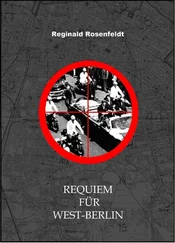Isaiah Berlin - Russian Thinkers
Здесь есть возможность читать онлайн «Isaiah Berlin - Russian Thinkers» весь текст электронной книги совершенно бесплатно (целиком полную версию без сокращений). В некоторых случаях можно слушать аудио, скачать через торрент в формате fb2 и присутствует краткое содержание. Год выпуска: 0101, Жанр: Старинная литература, на русском языке. Описание произведения, (предисловие) а так же отзывы посетителей доступны на портале библиотеки ЛибКат.
- Название:Russian Thinkers
- Автор:
- Жанр:
- Год:0101
- ISBN:нет данных
- Рейтинг книги:3 / 5. Голосов: 1
-
Избранное:Добавить в избранное
- Отзывы:
-
Ваша оценка:
- 60
- 1
- 2
- 3
- 4
- 5
Russian Thinkers: краткое содержание, описание и аннотация
Предлагаем к чтению аннотацию, описание, краткое содержание или предисловие (зависит от того, что написал сам автор книги «Russian Thinkers»). Если вы не нашли необходимую информацию о книге — напишите в комментариях, мы постараемся отыскать её.
Russian Thinkers — читать онлайн бесплатно полную книгу (весь текст) целиком
Ниже представлен текст книги, разбитый по страницам. Система сохранения места последней прочитанной страницы, позволяет с удобством читать онлайн бесплатно книгу «Russian Thinkers», без необходимости каждый раз заново искать на чём Вы остановились. Поставьте закладку, и сможете в любой момент перейти на страницу, на которой закончили чтение.
Интервал:
Закладка:
made only by minorities 'if only they do not destroy each other'. As
for socialism, it was a fantasy. It is characteristic of Russians, says his
hero and mouthpiece, Potugin, in Smolte, 'to pick up an old, wornout shoe which long, long ago fell from the foot of a Saint-Simon or a Fourier, and, placing it reverently on one's head, to treat it as
a sacred object'. As for equality, to the revolutionary Lopatin he
said, 'We are not, all of us, really going to walk about in identical
yellow tunics a Ia Saint-Simon, all buttoned at the back?'1 Still, they
were the young, the party of freedom and generosity, the party of the
have-nots, of those in pain or at least in distress; he would not refuse
them his sympathy, his help, his love, even while all the time looking
over his shoulder guiltily at his right-wing friends to whom he tried
again and again to minimise his unceasing flirtation with the left. On
his visits to Moscow or St Petersburg he tried to arrange meetings
with groups of radical students. Sometimes the conve�tions went well,
at other times, particularly when he tried to charm them with his
reminiscences of the 40s, they tended to become bored, contemptuous,
and resentful. Even when they liked or admired him, he felt that a
gulf divided them, divided those who wanted to destroy the old world,
root and branch, from those who, like him, wished to save it, because
in a new world, created by fanaticism and violence, there might be
too little worth living for.
It was his irony, his tolerant scepticism, his lack of passion, his
'velvet touch', above all his determination to avoid too definite a social
or political commitment that, in the end, alienated both sides. Tolstoy
and Dostoevsky, despite their open opposition to 'the progressives',
embodied unshakeable principles and remained proud and selfconfident, and so never became targets for those who threw stones at Turgenev. His very gifts, his power of minute and careful observation,
his fascination with the varieties of character and situation as such, his
detachment, his inveterate habit of doing justice to the full complexity
1 See German Lopatin's reminiscences in 1. 8. Turge� fl fiDspomilltJtri
Jillh rtrJDiy•tsi!JIIffllfJ-StmitksytJJIIii!Jfl (Moscow/Leningrad, 1930), p. u4.
:l-9:1


FATHERS AND C H I LDREN
and diversity of goals, attitudes, beliefs-these seemed to them morally
self-indulgent and politically irresponsible. Like Montesquieu, he was
accused by the radicals of too much description, too little criticism.
Beyond all Russian writers, Turgenev possessed what Strakhov
described as his poetic and truthful genius-a capacity for rendering
the very multiplicity of interpenetrating human perspectives that
shade imperceptiblyintoeach other,nuancesofcharacterand behaviour,
motives and attitudes, undistorted by moral passion. The defence of
civilisation by the spoilt but intelligent Pavel Kirsanov is not a caricature, and carries a kind of conviction, while the defence of what are apparently the very same values by the worthless Panshin in the NtSt
ofGmtlifollt does not, and is not meant to do so; Lavretsky's Slavophil
feeling is moving and sympathetic; the populism of both the radicals
and the conservatives in Smoltt is-and is intended to be- repulsive.
This clear, finely discriminating, slightly ironical vision, wholly dissimilar from the obsessed genius of Dostoevsky or Tolstoy, irritated all those who craved for primary colours, for certainty, who looked
to writers for moral guidance and found none in Turgenev's scrupulous,
honest, but-as it seemed to them-somewhat complacent ambivalence.
He seemed to enjoy his very doubts: he would not cut too deep. Both
his great rivals found this increasingly intolerable. Dostoevsky, who
began as an enthusiastic admirer, came to look on him as a smiling,
shallow, cosmopolitan pouur, a cold-hearted traitor to Russia. Tolstoy
thought him a gifted and truthful writer but a moral weakling, and
hopelessly blind to the deepest and most agonising spiritual problems
of mankind. To Herzen he was an amiable old friend, a gifted artist,
and a feeble ally, a reed that bent too easily before every storm, an
inveterate compromiser.
Turgenev could never bear his wounds in silence. He complained,
he apologised, he protested. He knew that he was accused of lack of
depth or seriousness or courage. The reception of Fathers and Children
continued to prey upon him. 'Seventeen years have passed since the
appearance of Fathers and Chi/drm,' he wrote in 1 88o, 'yet the attitude of the critics . . . has not become stabilised. Only last year, I happened to read in a journal apropos Bazarov, that I am nothing
but a bashi-bazouk1 who beats to death men wounded by others. '1
1 Barbarous Turkish mercenary.
• Preface to the 1 88o edition of his novels. Solmmit ID(IIifltflii, vo}. u,
PP· 3°7·8.
293

R U SSIAN T H INKERS
His sympathies, he insisted again and again, were with the victims,
never the oppressors-with peasants, students, artists, women, civilised
minorities, not the big battalions. How could his critics be so blindl As
for Bazarov, there was, of course, a great deal wrong with him, but
he was a better man than his detractors; it was easy enough to depict
radicals as men with rough exteriors and hearts of gold; 'the trick is
to make Bazarov a wild wolf, and still manage to justify him • . .'1
The one step Turgenev refused to take was to seek an alibi in the
doctrine of art for art's sake. He did not say, as he might easily have
done, 'I am an artist, not a pamphleteer; I write fiction, which must
not be judged by social or political criteria; my opinions are my private
affair; you don't drag Scott or Dickens or Stendhal or even Flaubert
before your ideological tribunals-why don't you leave me alone?' He
never seeks to deny the social responsibility of the writer; the doctrine
of social commitment was instilled into him once and for all by his
adored friend Belinsky, and from it he never wholly departed. This
social concern colours even his most lyrical writing, and it was this
that broke through the reserve of the revolutionaries he met abroad.
These men knew perfectly well that Turgenev was genuinely at his
ease only with old friends of his own class, men who held views that
could not conceivably be described as radical-with civilised liberals or
country squires with whom he went duck-shooting whenever he
could. Nevertheless, the revolutionaries liked him because he liked
them, because he sympathised with their indignation : 'I know I am
only a stick they use to beat the Government with, but' (at this point,
according to the exiled revolutionary Lopatin, who reports this conversation, he made an appropriate gesture) 'let them do it, I am only too glad.'1 Above all, they felt drawn to him because he was responsive
to them as individuals and did not treat them simply as representatives
of parties or oudooks. This was, in a sense, paradoxical, for it was
precisely individual social or moral characteristics that, in theory, these
men tried ·to ignore; they believed in objective analysis, in judging men
sociologically, in terms of the role that, whatever their conscious
Читать дальшеИнтервал:
Закладка:
Похожие книги на «Russian Thinkers»
Представляем Вашему вниманию похожие книги на «Russian Thinkers» списком для выбора. Мы отобрали схожую по названию и смыслу литературу в надежде предоставить читателям больше вариантов отыскать новые, интересные, ещё непрочитанные произведения.
Обсуждение, отзывы о книге «Russian Thinkers» и просто собственные мнения читателей. Оставьте ваши комментарии, напишите, что Вы думаете о произведении, его смысле или главных героях. Укажите что конкретно понравилось, а что нет, и почему Вы так считаете.










